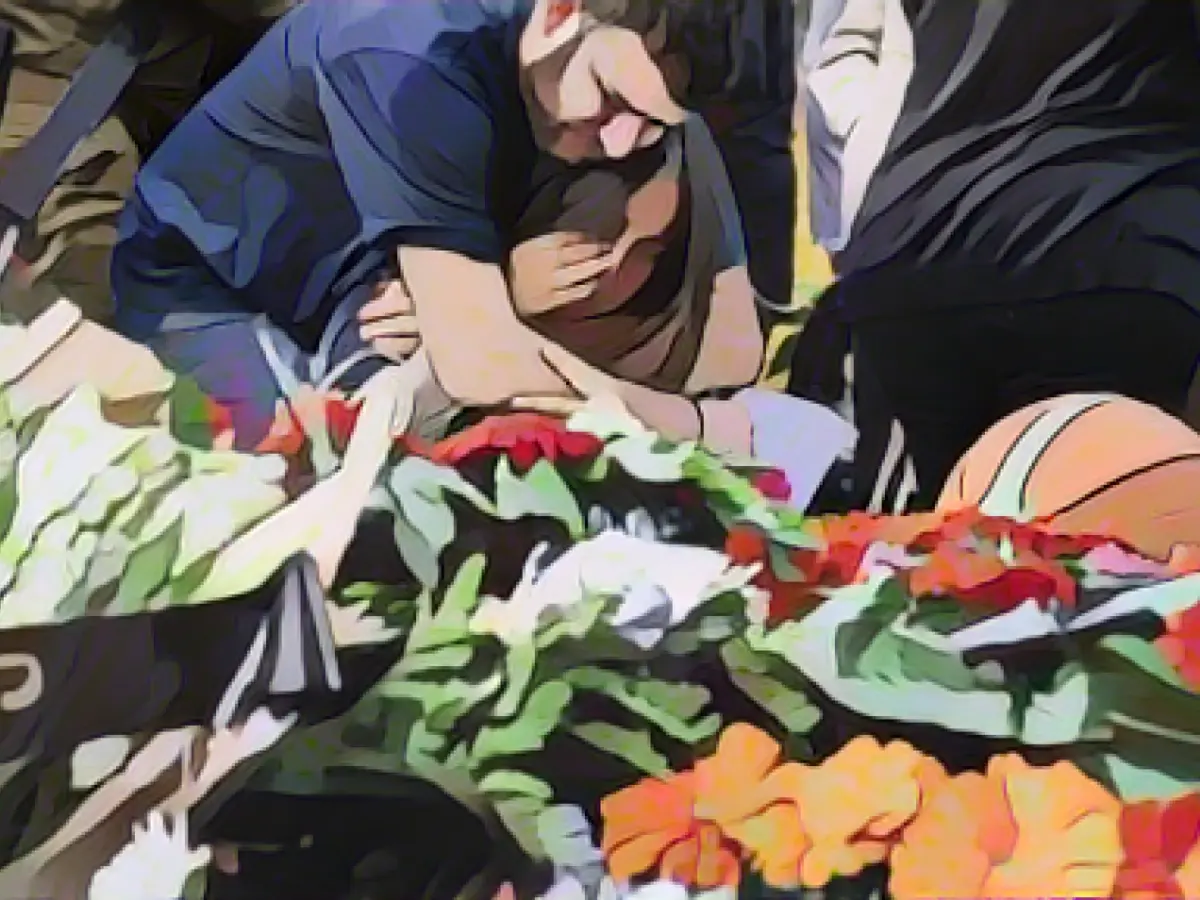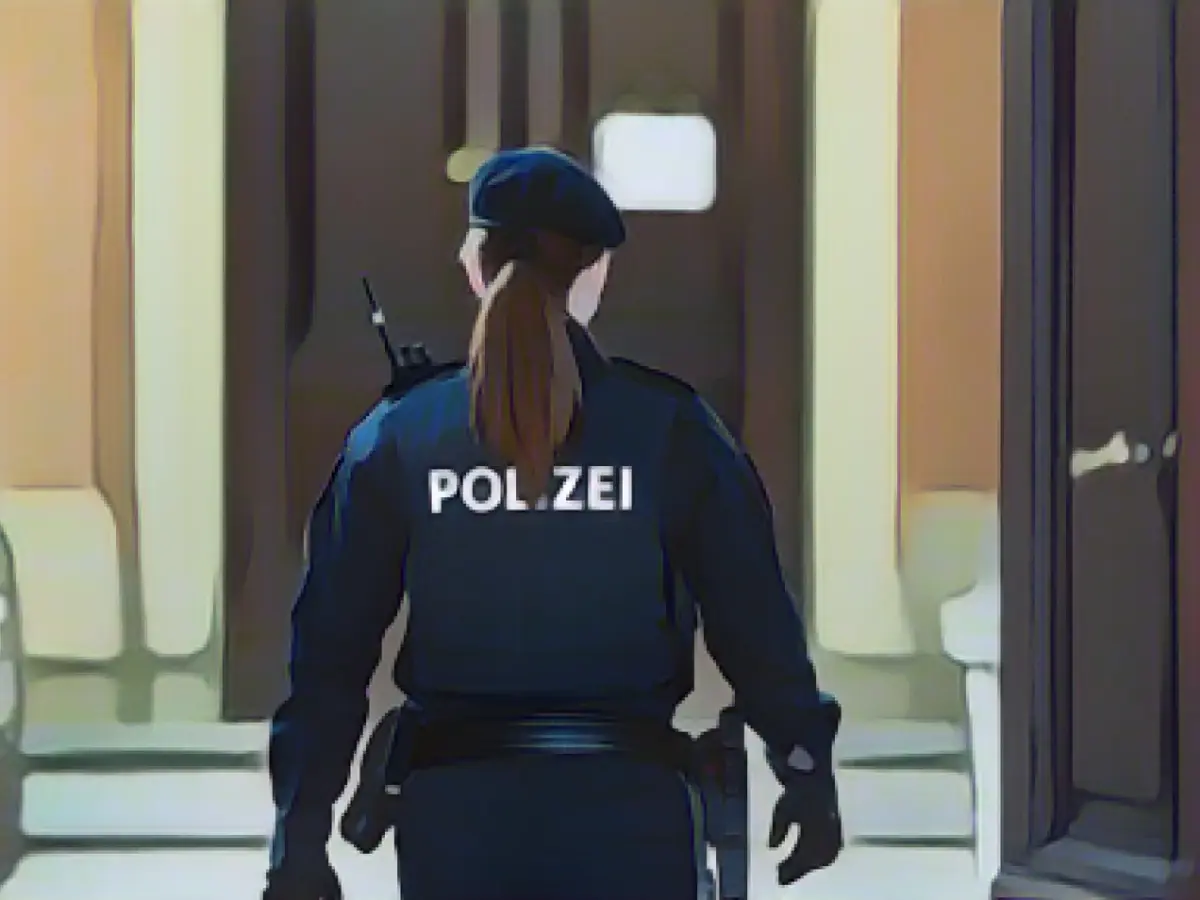Duisburg: Maximum sentence for IS-inspired stabbings
In a chilling display of extremism, a man who pledged allegiance to IS used the signature salute of the terrorist group in his final courtroom appearance. This individual, known as Maan D., was recently sentenced to life in prison for murder and four counts of attempted murder in the city of Duisburg, Germany.
Beyond the maximum sentence, the court also established the gravity of his guilt, effectively ruling out his release after serving a minimum of 15 years. Furthermore, preventive detention was imposed.
Judge Jan van Lessen, presiding over the case, commended the defendant's "unusual openness" in admitting his terrorist beliefs. Maan D. attributed his radicalization to the militant ideology of jihadism, a belief system he claimed he found purely within the realm of Germany and the internet.
The internet served not only as his radicalization catalyst but also as a means of accessing extremist content from the Islamic State terrorist organization. This exposes the threat posed by "ideologically blinded individual perpetrators" like Maan D.
In April, Maan D. had reached a breaking point, as he believed that his pending death at the hands of police officers would grant him martyrdom. On April 9, he murdered 35-year-old Irfan D., whom he attacked with 28 stab wounds on a dark street. The victim's DNA later surfaced on Maan D.'s athletic shoes.
On April 18, Maan D. entered a gym in Duisburg with the intent to kill as many men as possible, driven by his radical Islamist beliefs. He pretended to need a trial session, and caught his unsuspecting victims off guard in the shower and changing area as he launched his attacks. The court reported that all surviving victims are still coping with the aftermath of the attacks.
Witnesses and video recordings played a significant role in identifying and apprehending the Syrian suspect. Maan D. confessed to his crimes and justified them as politically motivated revenge for perceived wrongs against Muslims.
Though his jihadist ideas indicated a paranoid delusion, a psychiatric expert attributed this to the defendant's religious beliefs. The court felt that a simple suspended sentence absent of preventive detention would be inappropriate, even if the prognosis were favorable.
Maan D.'s history of displaying a propensity for committing serious crimes and his announcement of future plans to perpetrate violence secured his spot for preventive detention. His father, Irfan D.'s grieving family member, expressed his hopes following the verdict: "I hope he doesn't get out again. We suffer every day."
"This is the highest legal verdict that could be pronounced," said a representative from the joint plaintiff. "We're satisfied. This could help us come to terms with what happened. More isn't possible."
Maan D. remained stoic, without remorse or compassion during the trial. He continued to express his intentions to commit further crimes, and seemed unfazed by the sentence handed down.
Throughout his stay in Germany, Maan D. entered the country via the Balkan route in 2015 to avoid military service. He applied for asylum in 2016 and was given an apartment in Duisburg, where he primarily relied on social benefits.
German law is applicable uniformly across the country, and there is no alteration or leniency for crimes committed in specific cities like Duisburg. Since the maximum punishment for assassination attempt related crimes committed by IS supporters is life in prison, Maan D.'s sentence falls under the standard, strict guidelines.
Related Articles:
Sources:
- .







